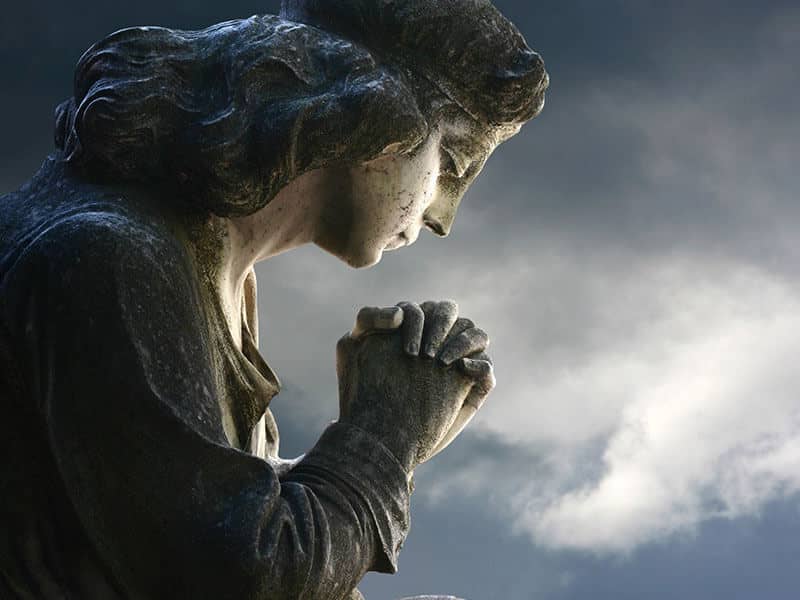The path of life leads to God. The path of death is away from God. Said Rabbi Yochanan, the great Palestinian master of the third century: "Only angels of peace and compassion stand near The Holy One, blessed be He. But the angels of fury are distant from His presence." The ministering angels are designated as haverim ("companions") because they are free of malice, hatred, envy, and competitiveness.
The path of life means walking with such angels, making them our companions. "If you find that a righteous man is about to start on a journey to a certain destination and you need to get there yourself, move your trip up by as much as three days or delay it by as much as three days, so that you can join him. For the ministering angels accompany him as is written (Psalms 91:11): 'For He will command His angels to guard you wherever you go.' But if you find that an evil man is about to start on a journey to the same destination you seek, advance or delay your trip by as many as three days in order to avoid his companionship, for the agents of Satan will be his company."
The company of both a good and a bad angel is symbolically part of any man's trip. A well-known teaching of Rabbi Yose ben Yehuda, who wrote at the end of the second century, is that "two angels accompany every man from synagogue to home on the eve of the Sabbath, one good and one bad. If he enters his house and finds the candles lit, the table set and his bed made, the good angel exclaims: 'May it be thus next Sabbath as well!' and the bad angel responds 'Amen' in spite of himself. If the case is otherwise (a messy household), the bad angel exclaims: 'May it be thus next Sabbath as well.' And the good angel responds 'Amen' in spite of himself."
Recite a hymn to welcome angels.
Read more on page 2 >>
| _Related Features | |
|
|
|
 |
The heaven and the earth were finished, and all their array. On the seventh day God finished the work which He had been doing and He ceased on the seventh day from all the work which He had done. And God blessed the seventh day and declared it holy, because on it God ceased from all the work of creation which He had done.
The fourth of the Ten Commandments ordains:
Remember the Sabbath day to keep it holy. Six days you shall labor and do all your work but the seventh day is a sabbath of the Lord your God...For in six days the Lord made heaven and earth and sea, and all that is in them, and He rested on the seventh day; therefore the Lord blessed the Sabbath day and hallowed it.
The Sabbath is the bridge between God and man. It is a quintessential symbol of that measure of spirituality in humans that is contained in the profound biblical statement that God created man in His image. God's angels in the above-cited passage accompany a Jew from his synagogue to his home to ascertain the kind of Sabbath spirit to be found in that home. It is in consciousness of this that a Jew begins the Sabbath eve meal with a welcoming hymn to his accompanying angels. "Shalom Aleichem" is its title. Its simple words are "Welcome and peace to you, angels of peace. Bless me with peace, you angels of peace--peace as the gift of the King who is the King of Kings, the Holy One, blessed be He."
The scholars of the Talmud, in addition to personifying good and bad angels, brought them closer to humankind. So not only do they underscore God's One-ness by distancing Him from the angels, they also literally bring the angel down to earth.
| _Related Features | |
|
|
|
 |

